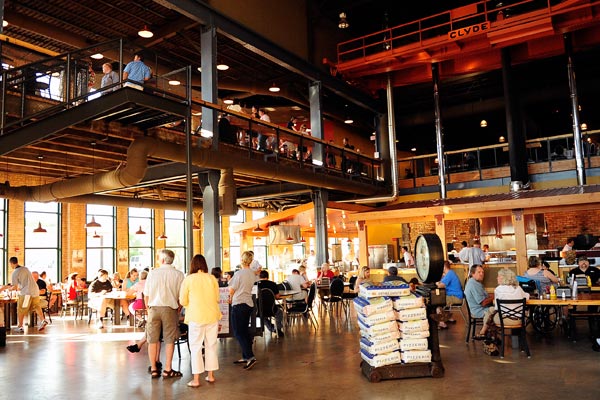Local Highlights

Duluth
By the numbers,
1997–2010:
- $68.6 million
- $146.7 million
- 440,586 sq. ft.
-
668 (LISC)
106 (Affiliates)
774 (Total)
Total Investment
Dollars Leveraged
Commercial Space
Homes & Apartments

At Home in Duluth
Since 2007, Duluth LISC, raised over $7.2 million for its At Home in Duluth Building Sustainable Communities initiative, to implement Quality of Life plans in five neighborhoods expanding into program areas such as: family income and asset building, workforce development, green jobs, arts-based revitalization planning, and provision of AmeriCorps members.
Expanding Affordable Housing and Real Estate
Duluth LISC responded to the foreclosure crisis by supporting the City of Duluth’s application for $1.6 million in federal Neighborhood Stabilization Program funds delivered by two At Home partners, Northern Communities Land Trust (NCLT) and the Duluth HRA. We helped secure state funds and operating support for NCLT for their purchase-rehab-resale work and for development of the Duluth Veterans’ Place, providing supportive housing for homeless veterans. LISC invested a recoverable grant, historic preservation, and Home Depot funds in Gimaajii’s supportive housing project that will include a community resource center for American Indian households.
Increasing Family Income and Wealth
Duluth LISC co-administers Duluth At Work, a poverty reduction, workforce, and small business development initiative, in partnership with the City. Currently, 150 low-income employees are receiving skill development, job placement, and case management services. The goal is to increase incomes by at least 25 percent over three years. Two Duluth At Work small business programs are also underway. Community Action Duluth received LISC grant funds and technical assistance to open a Financial Opportunity Center in 2011. It will provide bundled job placement, access to benefits, and financial coaching services to an estimated 175 households in the first year.
Stimulating Economic Development
The Clyde Park development received $9.1 million in LISC New Markets Tax Credits for the adaptive reuse of a brownfield site, which will house Clyde Ironworks Restaurant and Venue, an entertainment facility and other retail facilities. Creating over 100 jobs, it joins the Duluth Heritage Sports Center and Boys and Girls Club in bringing new energy, family activity, and commerce to the Lincoln Park neighborhood. Along with the City and Zeppa Foundation, Duluth LISC co-facilitated a Green Jobs Action Planning process producing 30 green jobs action strategies. This helped secure $1.5 million in federal state energy program funds to create the Duluth Energy Efficiency Program, adding jobs and residential energy savings. LISC’s MetroEdge Program profiled the customer markets for existing and planned businesses in Lincoln Park for business retention and expansion strategies.
Increasing Access to Quality Education
Duluth LISC, Duluth Public Schools, the City and others are implementing Long Range Facilities and Program Plans. These include: reuse of closed schools, shared use of school building, Safe Routes to School, trail connections, adaptive reuse, and partnerships with youth agencies.
Healthy Environments
Duluth LISC’s At Home Community Safety Initiative includes citywide crime prevention meetings, block meetings and parties, Citizen Crime Patrols in At Home neighborhoods, and a Blight Prevention Team. LISC’s Sustainable Communities efforts also include addressing the Mayor’s Prosperity Agenda, Fit City Duluth Complete Streets, healthy foods and access to parks, trails, and healthy lifestyles.